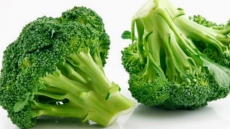Diabetes is a chronic metabolic disease that affects millions of people worldwide. With the increasing prevalence of diabetes, it has become imperative to explore alternative treatment options that complement conventional medical interventions. India alone has seen a 44 per cent increase in diabetic cases over the last four years and about 100+ million people are affected by diabetes. Combined with a healthy lifestyle, proper nutrition, and regular exercise, Ayurvedic herbs can contribute to better blood sugar control and improve the overall quality of life for individuals living with diabetes.
Ayurveda, an ancient system of medicine originating from India, offers a holistic approach to managing diabetes. Ayurvedic herbs have gained recognition for their potential for blood sugar regulation and can serve as valuable adjuncts to conventional therapies. Here is a list of Ayurvedic herbs for the natural management of diabetes.
Karela (Bitter Melon):
Karela, also known as Bitter Melon, has long been used in Ayurveda for its anti-diabetic properties. It contains an insulin-like compound called polypeptide-p, which helps lower blood sugar levels. Bitter melon also aids in improving glucose utilisation and stimulating insulin secretion, making it an excellent choice for diabetes management.
Jamun:
Jamun, also known as Indian blackberry or black plum, has hypoglycemic effects, aiding in lowering blood sugar levels. It contains bioactive compounds like anthocyanins, ellagic acid, and polyphenols, which further aid the process. Consumption of jamun or its juice helps regulate blood glucose levels, improve insulin sensitivity, and reduce the risk of diabetic complications. Its high dietary fibre content slows down sugar absorption, promoting better glycemic control. Including jamun in a balanced diet can effectively manage diabetes.
Giloy (Tinospora Cordifolia):
Giloy, also known as Tinospora Cordifolia, exhibits hypoglycemic effects by stimulating insulin secretion and improving insulin sensitivity, helping to regulate blood sugar levels. Additionally, its anti-inflammatory properties can reduce inflammation and enhance insulin sensitivity. Giloy's antioxidant property helps protect pancreatic beta cells and counteract the oxidative stress associated with diabetes. Incorporating Giloy into a comprehensive diabetes management plan may provide additional support for maintaining stable blood sugar levels and promoting overall well-being.
Gudmar (Gymnema Sylvestre):
Gudmar, also known as Gymnema Sylvestre, has been recognised for its potential role in managing diabetes naturally. It may help control blood sugar levels by reducing glucose absorption and enhancing insulin sensitivity. Additionally, Gudmar has been associated with managing sugar cravings and supporting pancreatic health.
Indian Gooseberry (Amla):
Indian Gooseberry, or Amla, is a potent Ayurvedic herb that offers numerous health benefits, including blood sugar regulation. It is rich in vitamin C and antioxidants, which help improve pancreatic function and enhance insulin secretion. Amla also aids in reducing oxidative stress and inflammation, which are often associated with diabetes.
While Ayurvedic herbs cannot replace conventional medical treatments for diabetes, they can play a significant role in managing blood sugar regulation and overall diabetes naturally. The herbs mentioned above offer a range of potential benefits, from improving insulin sensitivity to reducing oxidative stress.





